The War on Feminism and the Promotion of Faux Feminism
For my podcast, I will cover the political belief of feminism, it’s teachings, roots, misinformation, commercialization, misconceptions, sub-teachings, and how to apply it to everyday situations and unite rather drift apart.
I will also briefly cover radicalization, how it starts and appears, and how serious it can get, as well as ways to prevent it and notice it happening – as someone who has watched someone close become extremely radicalized.
This idea came from a similar project from last year.
Part one: Feminism’s history, phases, principles and goals
- Phases of feminism
- Patriarchal/white feminism
- 4B Movement
- End goal
Part two: Commercial and faux feminism (+ feminist subtypes)
- Brocialism
- Girlboss (2010s) feminism
- #MeToo
- Intersectional/Radfems/Marxist/Cultural/Eco/Socialist
- Choice Feminism
- Riot Grrl
Part three: The road to alt-right radicalization
- Celebrification of politicians/propaganda
- Crunchies
- Fandom
- Internet/Social media
- Word Treadmill
- German government collapse + AFD
- Pandemic
- Trad Wives
- Porn
Part four: Dealing with radicalization
Part five: Unite and Liberate
- Foundation
- Community
- Anarchy
- Education (history, media, etc)
- Disability
- Offerings
- Healthcare
- Inter-generational communities/bonds/connections
Overviews:
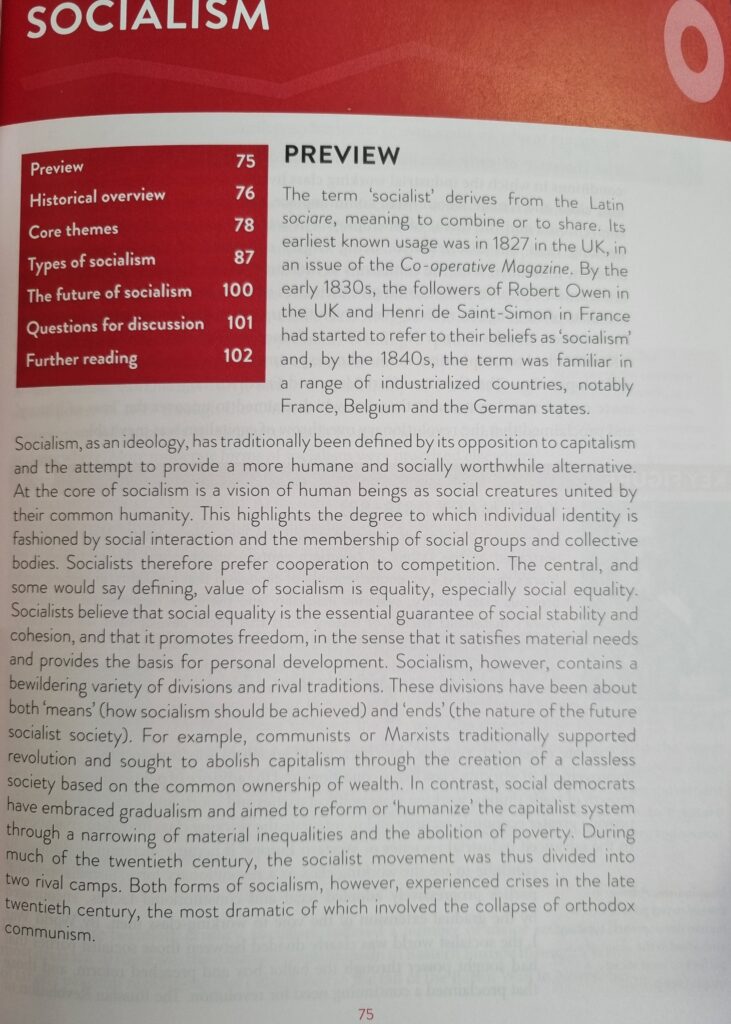
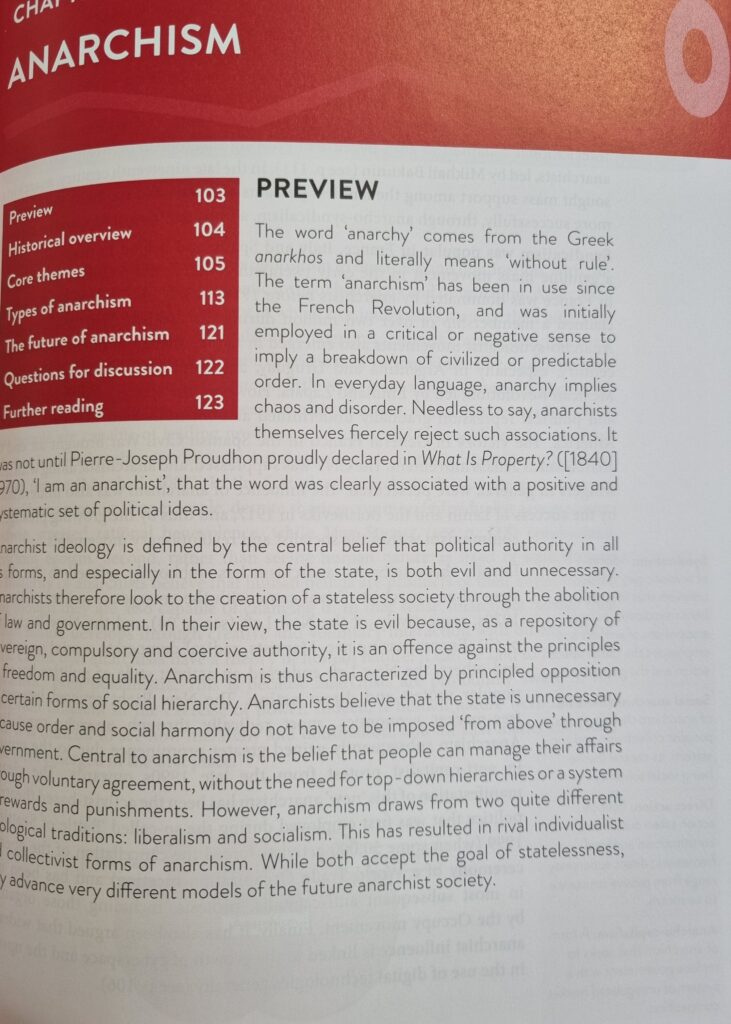
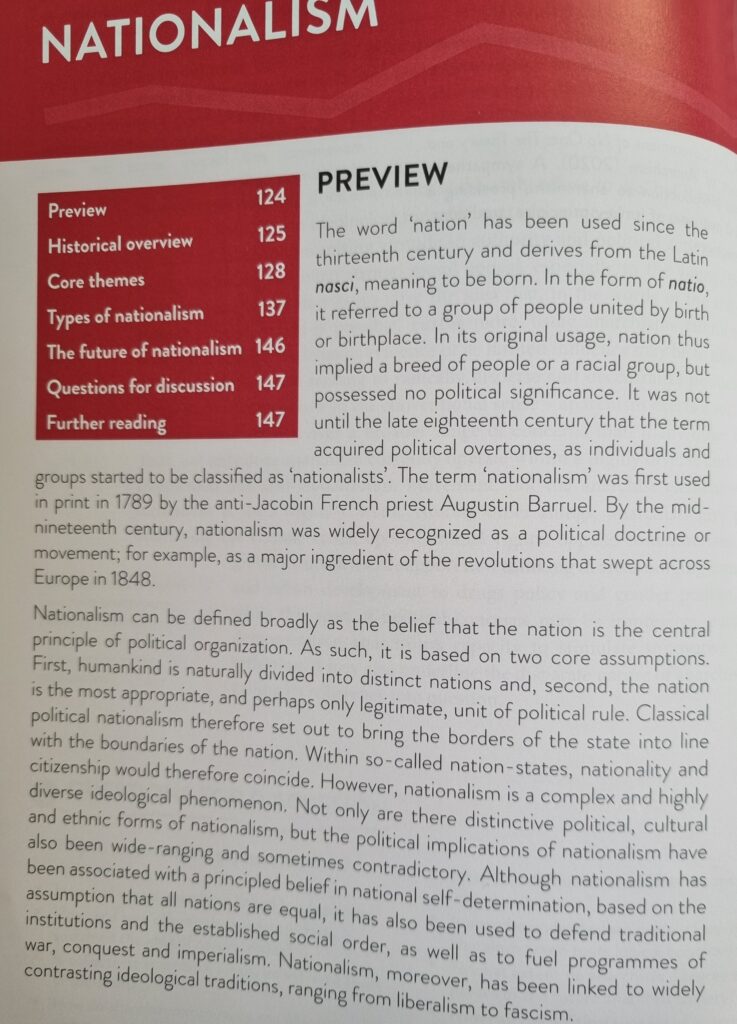
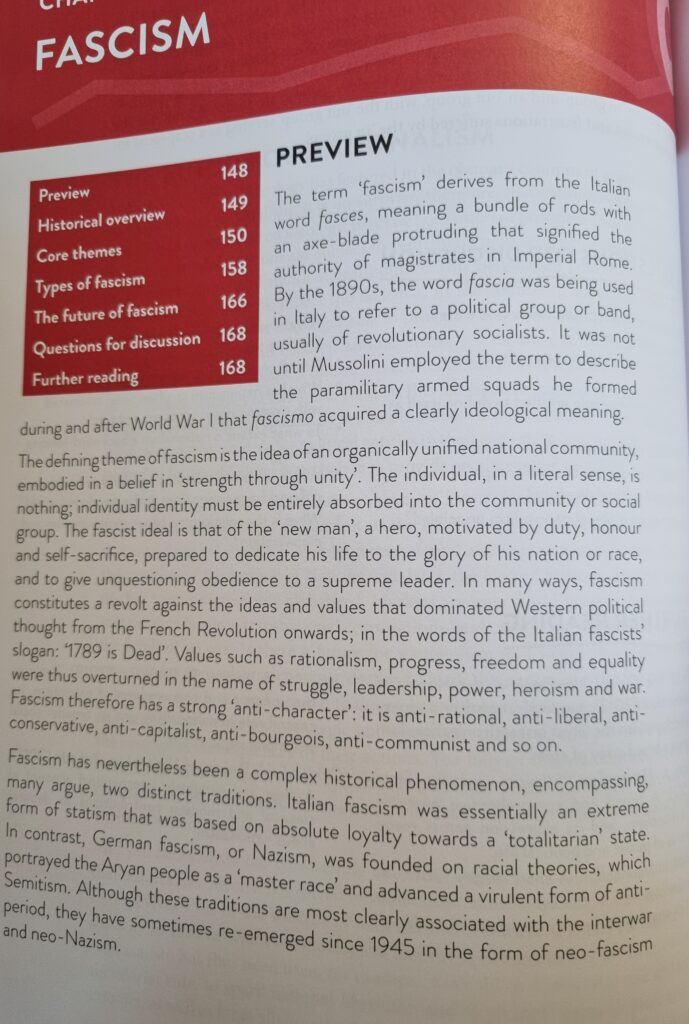
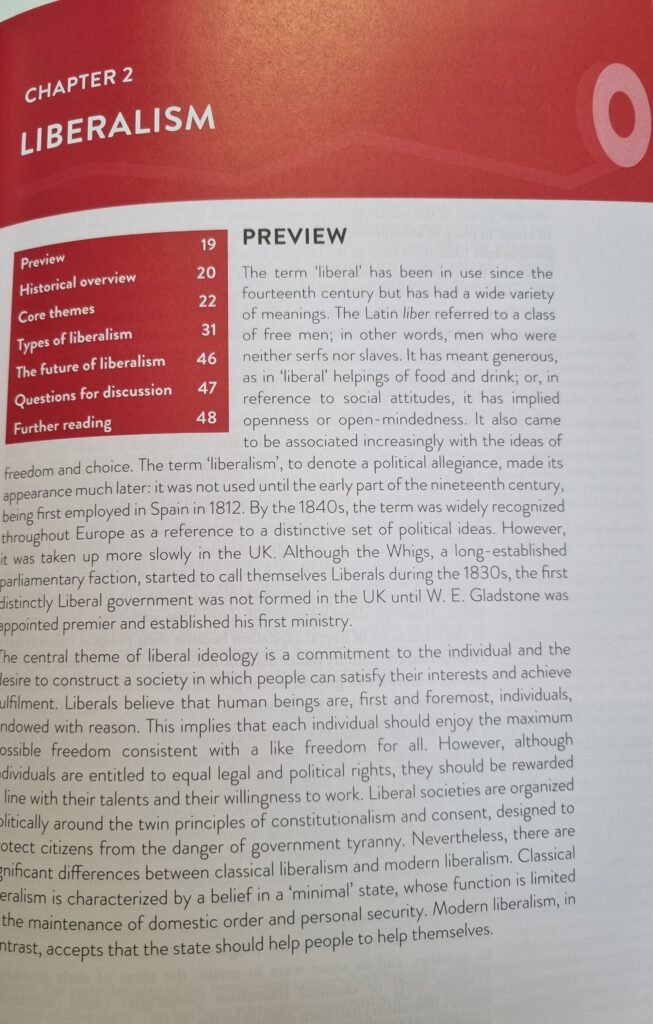
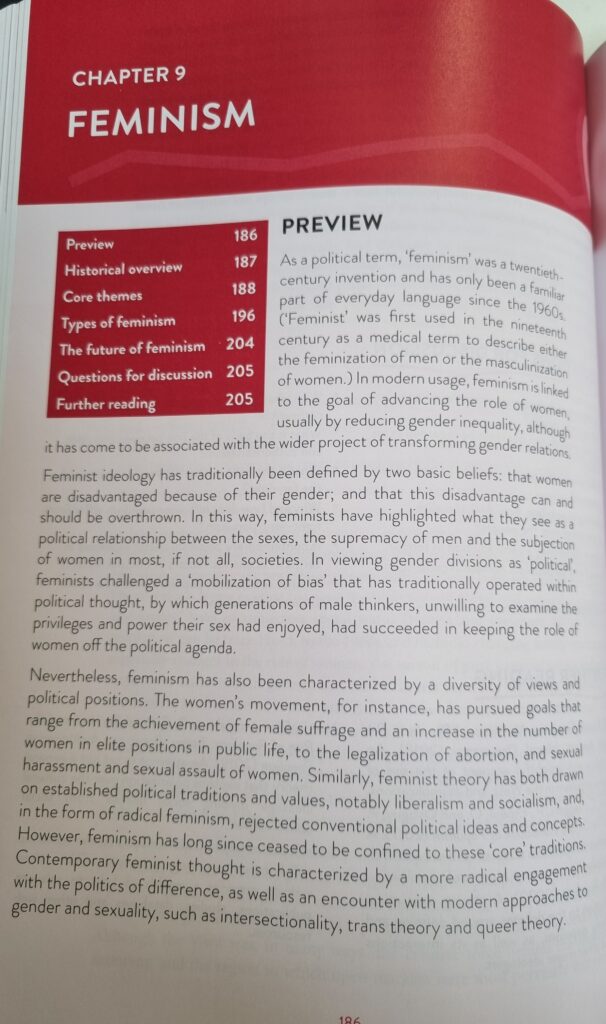
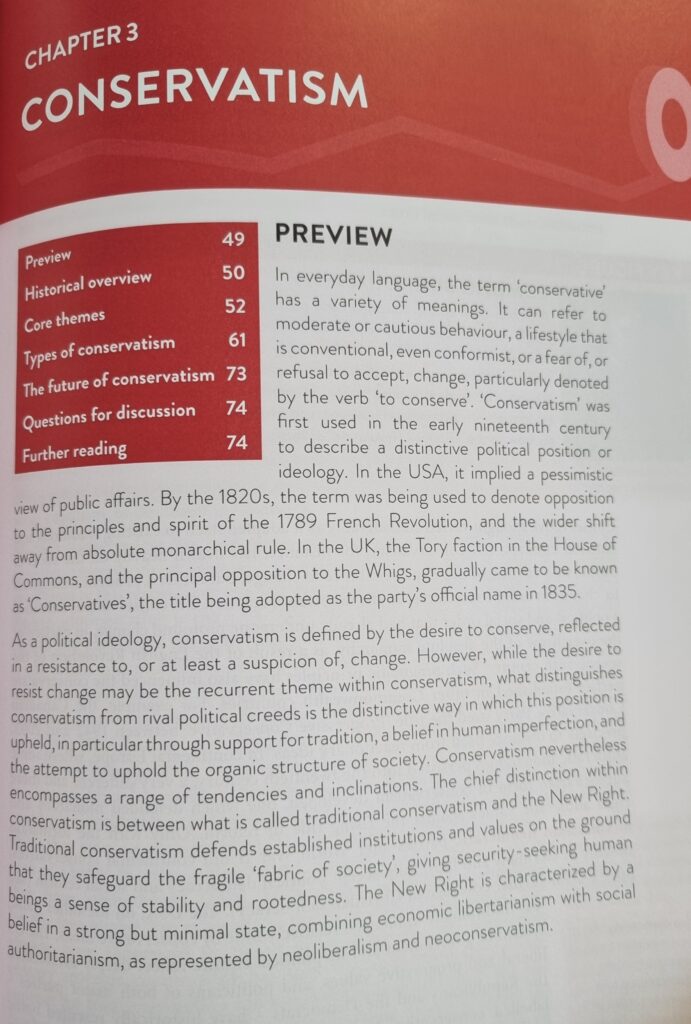
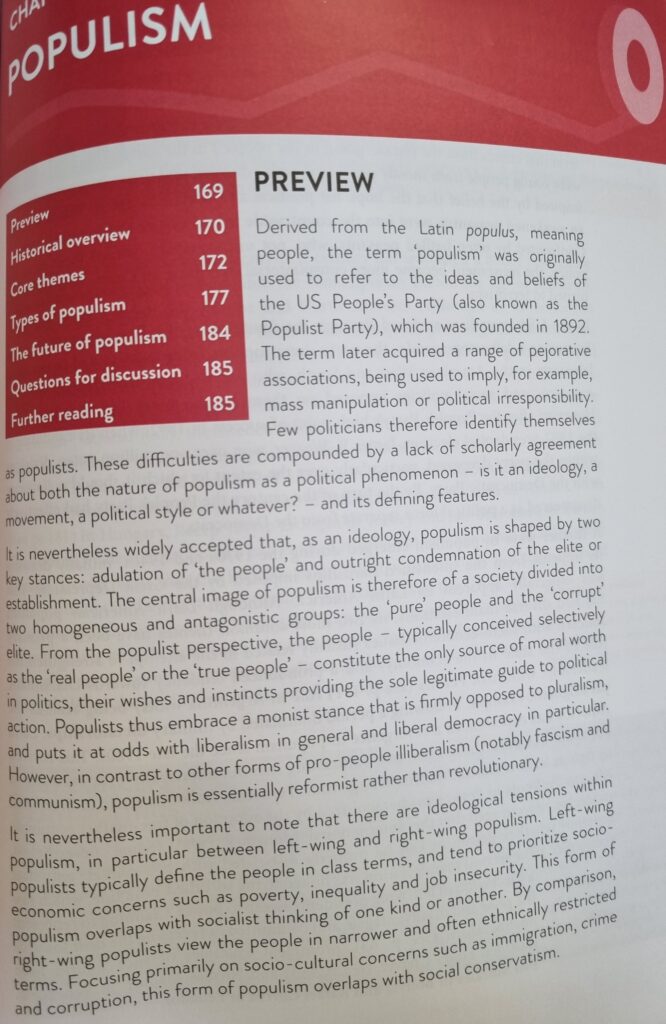
Venn diagrams & related:

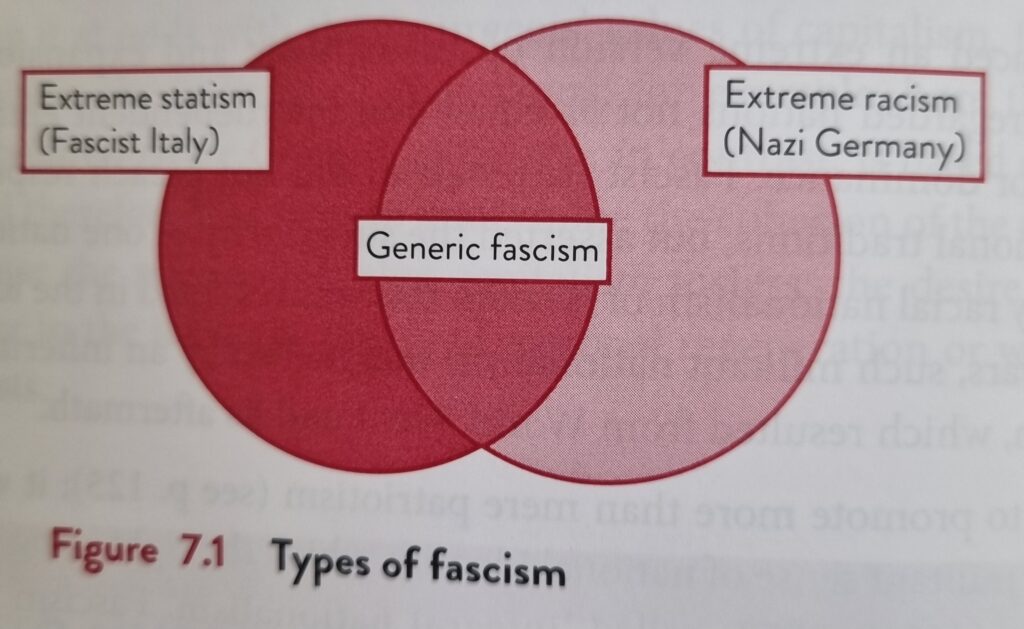
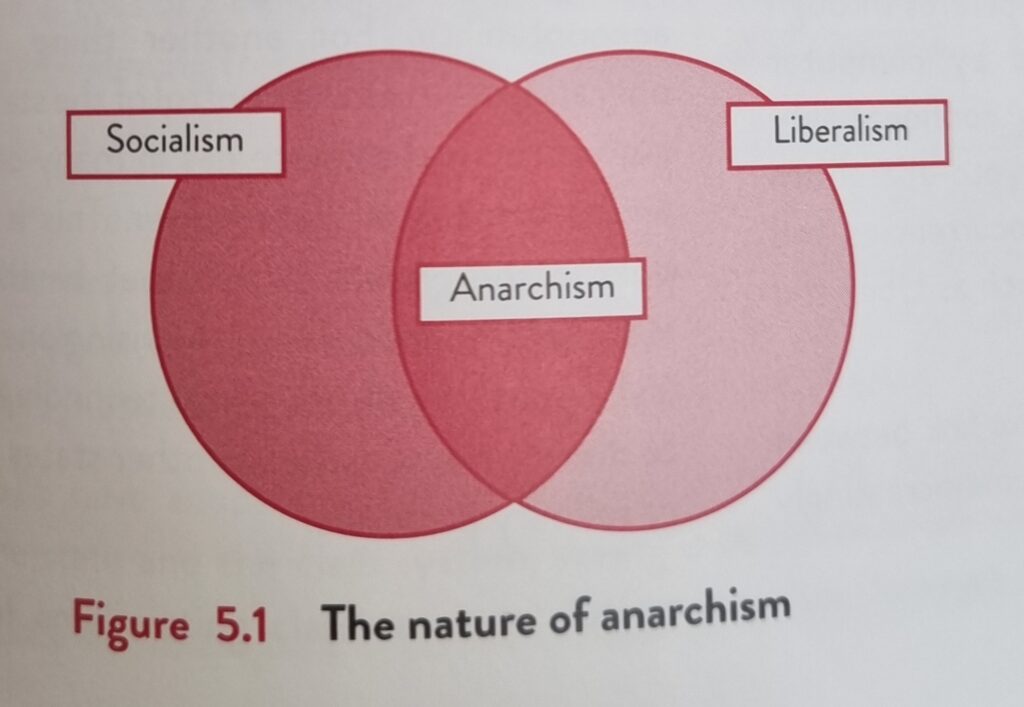
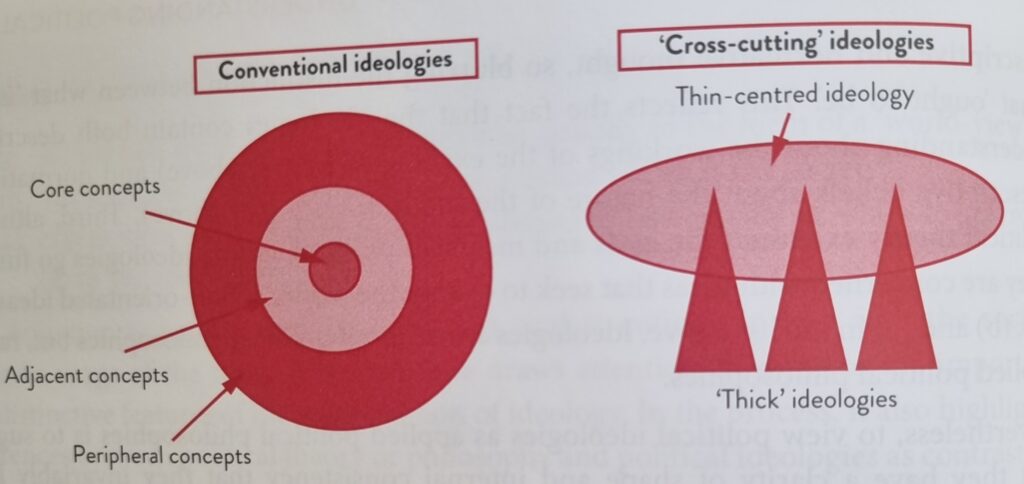
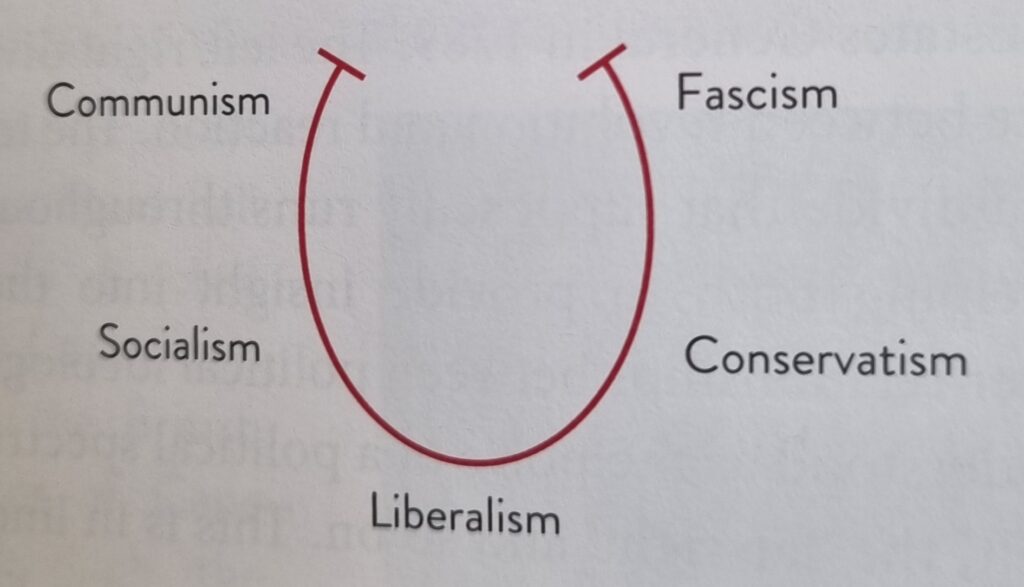
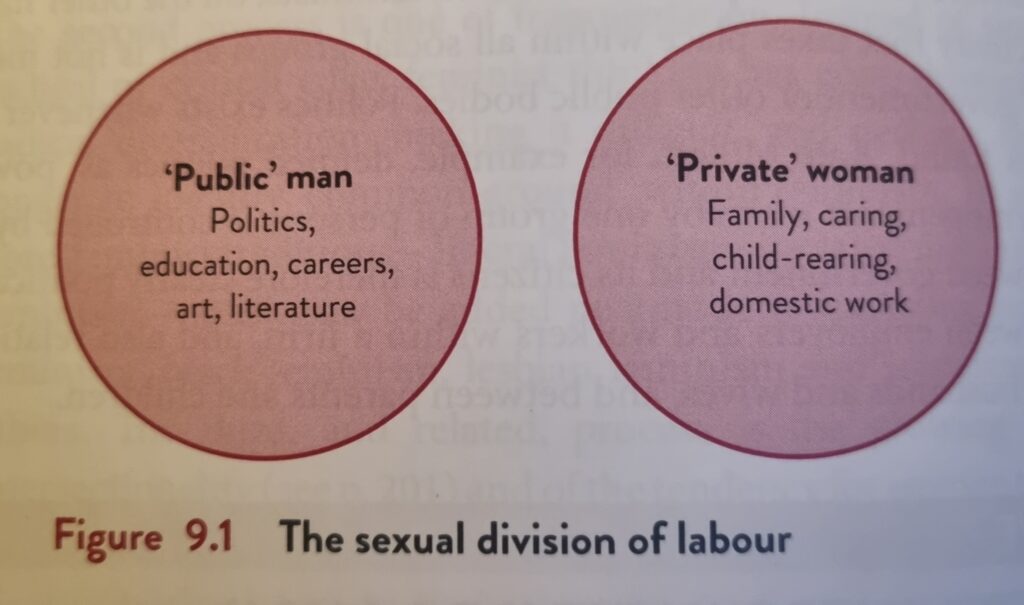
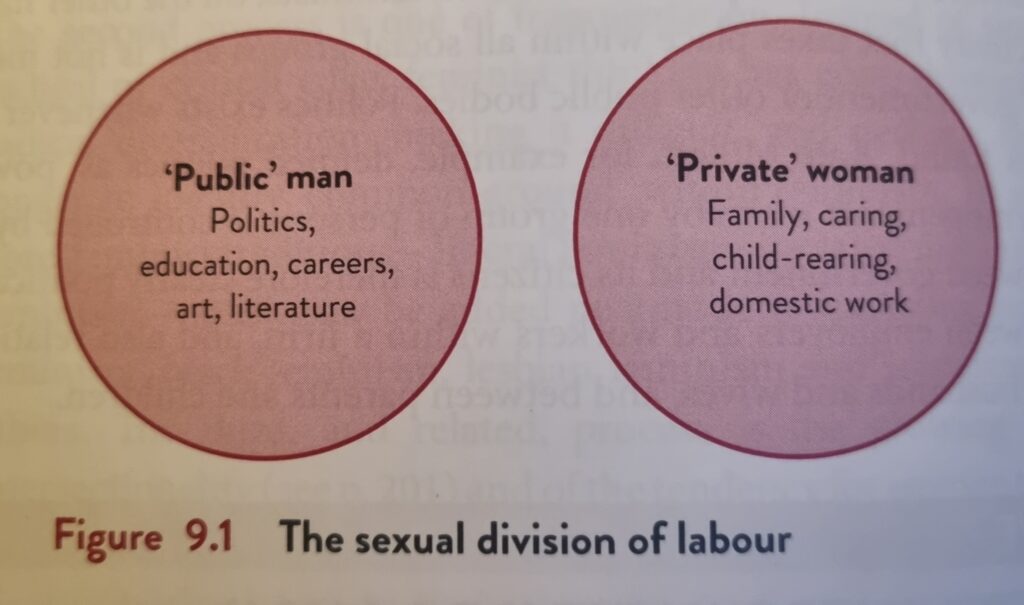
Comparisons/Differences/Definitions:
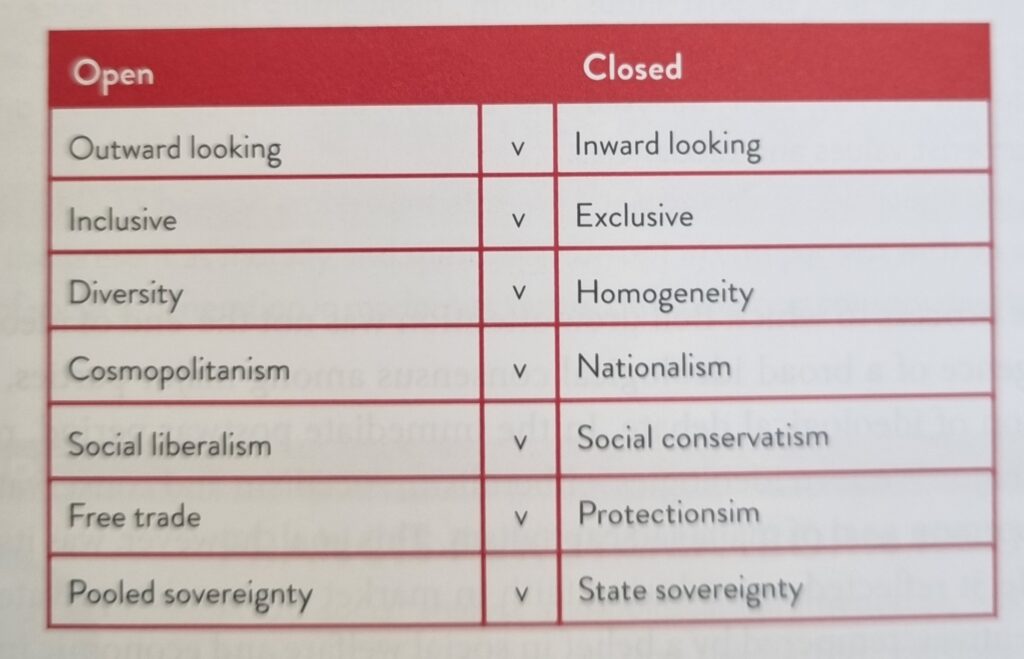
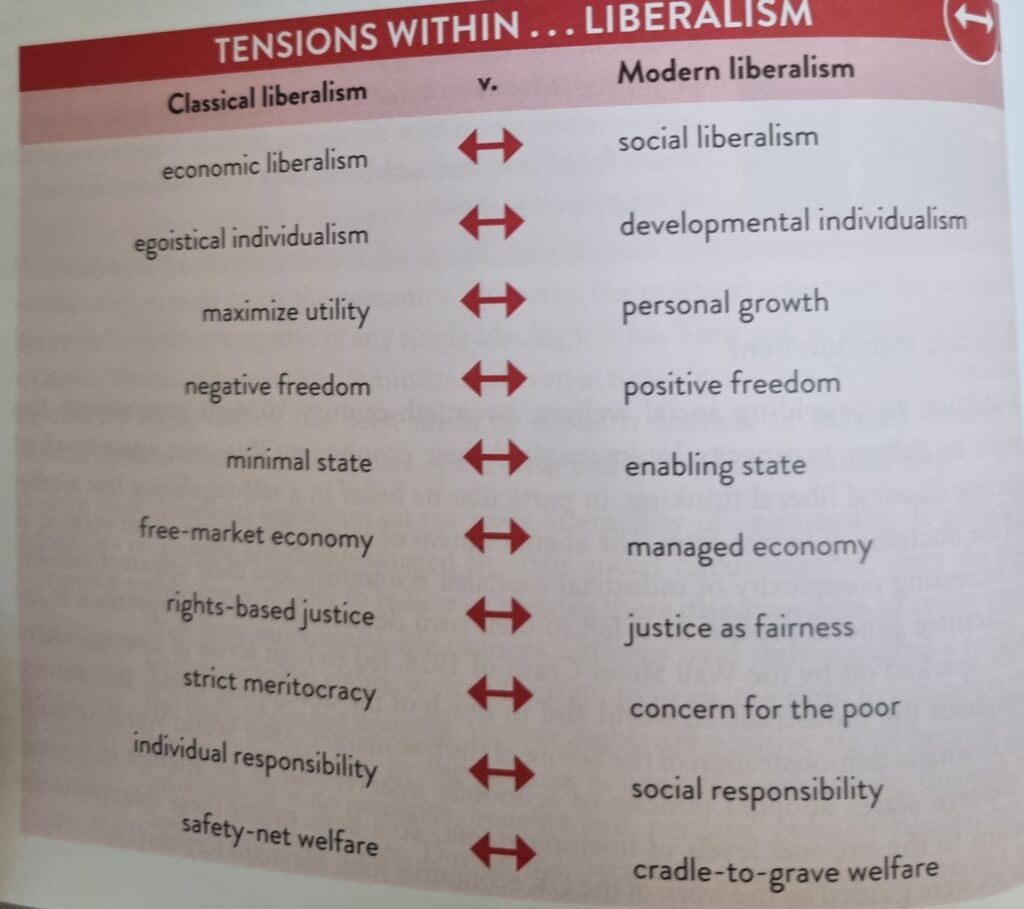


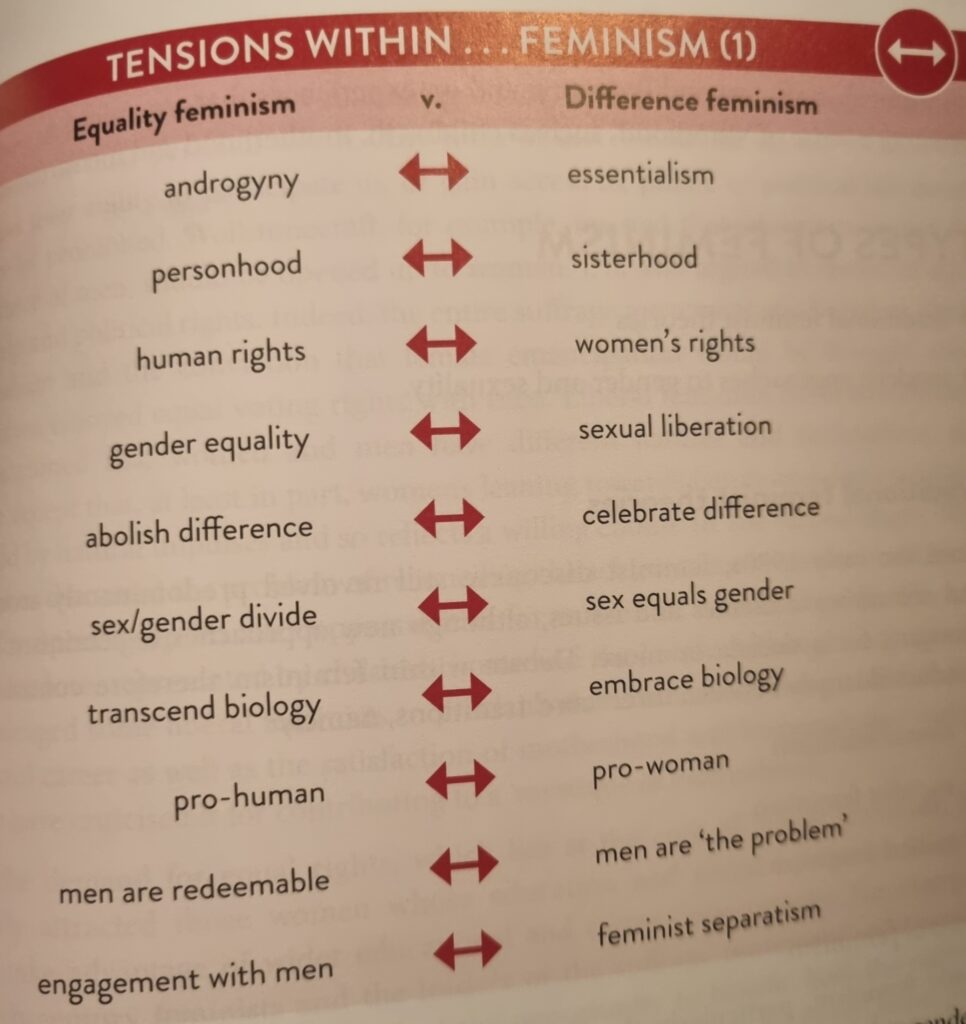
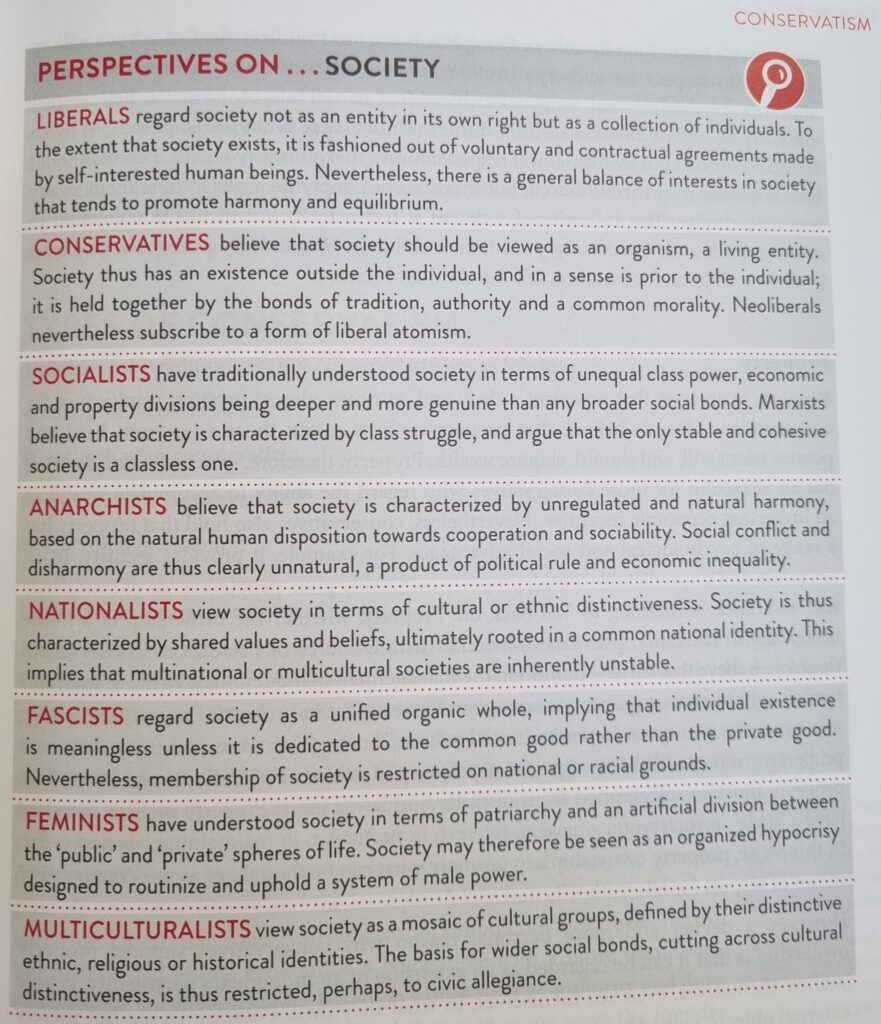
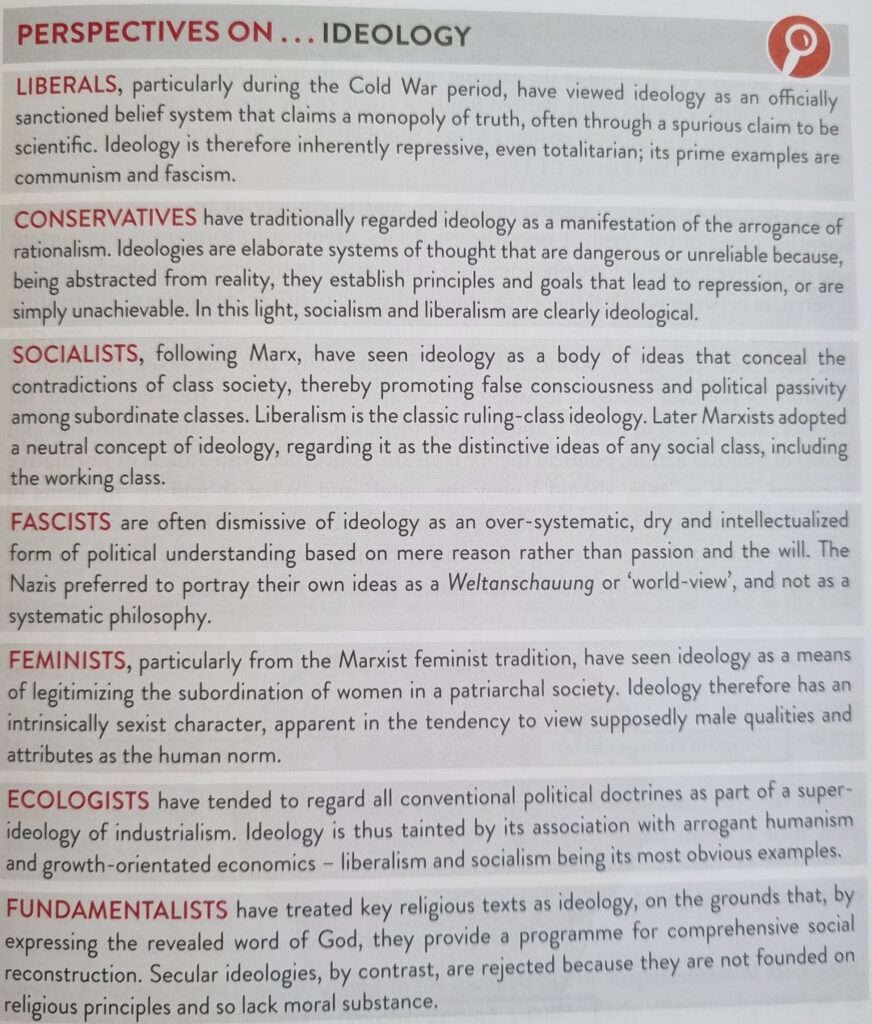

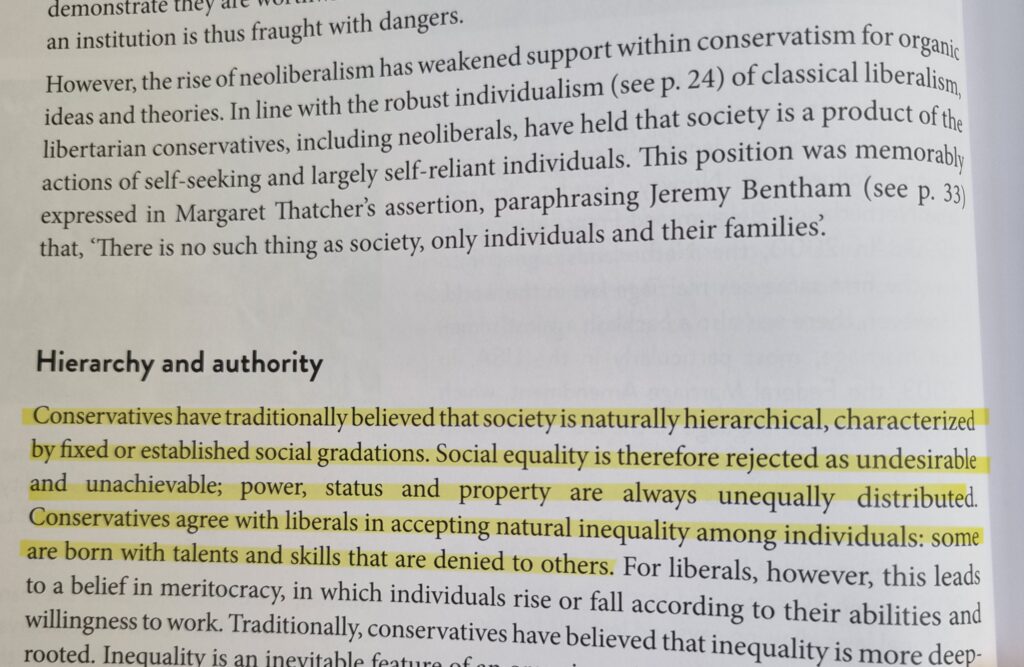
Images from ‘Political Ideologies: An Introduction (Seventh Edition)’ by Andrew Heywood
Script (not word for word):
Part one:
Throughout modern history, feminism is broken down into ‘waves’ of different eras, time periods in which women and minorities felt it was especially prevalent to advocate for their rights.
First-wave feminism:
As we all know, feminism was birthed with the suffragettes (around the late 19th – early 20th century), this initial wave really only focused on legal inequality. Female suffrage was the principle goal of first-wave feminism, as the majority believed that if women could vote, all other forms of sexual discrimination or prejudice would quickly disappear. Unfortunately, as we know, that’s not how it works.
First-wave feminism had a lot of issues regarding inclusivity and an overall lack of understand for the patriarchy and the systems set in place to oppress us all. First-wave feminists really only cared about a very small number of women – as of course segregation and extreme racism were still at large at this time. The suffragettes did not consider, poor women, disabled women, women of colour, childless women, sex workers, etc. When women did finally receive the vote, for the first time in UK history,(1918) they had to meet a certain criteria – women over the age of 30 who met a property qualification to vote. And, although around 8.5 million women met this criteria, it was only approximately two-thirds of the total population of women in the UK.
People: Emily Davidson, Lucy Stone, Susan B. Anthony, Lucretia Mott
Note: Although first-wave feminism is considered beginning of feminism, feminist beliefs and values have been found throughout pre-modern history; dating as far back to the ancient civilizations of Greece and China.
Second-wave feminism:
1950s-1970s:
- Educational rights
- Work-force
- Equal pay
- Challenging traditional gender roles
- BIPOC (specifically black, especially in the USA) issues
- Sexual liberation
People: Rosa Parks, Martin Luther King Jr, Malcom X, Kate Millet, Betty Friedan, Germaine Greer, Simone De Beauvoir
Third-wave feminism:
1990s-2000s
- Class inequality
- LGBTQ+
- A larger focus on BIPOC rights
- Working class women
- Working & single mothers
- Female punk and grunge
People: Rebecca Walker, Kathleen Hanna
Part two:
“In the days ahead, we must not consider it unpatriotic to raise certain basic questions about our national character.” – Martin Luther King, Jr.
“When machines and computers, profit motives and property rights are considered more important than people, the giant triplets of racism, materialism, and militarism are incapable of being conquered.” – Martin Luther King, Jr.
“Power at its best is love implementing the demand of justice. Justice at is best is love correcting everything that stands against love.” – Martin Luther King, Jr.
“If we make the choice… to listen rather than speak and to see rather than look away, we will choose community over chaos.” – Martin Luther King, Jr.
“We are confronted with the fierce urgency of now… [T]here is such a thing as being too late. This is no time for apathy or complacency. This is a time for vigorous and positive action.” – Martin Luther King, Jr.
“…for the world is in a bad state, but everything will become still worse unless each of us does his best.” – Viktor Frankl
“Nothing is provocative anymore, even for kids. No room for imagining, cause everyone’s seen everything.” – Marina Diamandis
“They may torture my body, break my bones, even kill me. Then they will have my dead body, but not for my obedience.” – Mahatma Gandhi
Part three:
Part Four: